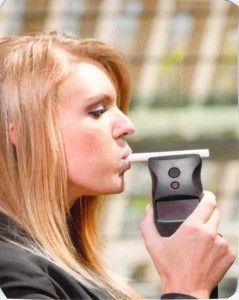Driving Under the Influence of Intoxicants, or DUII, is a serious charge. Unlike many other crimes, DUII arrests are common for all people in society. Most crimes require some kind of intent to break the law, but DUII is a “strict liability crime” where it doesn’t matter what the person was thinking: if the person was drunk while driving, they can be arrested and convicted of DUII.
DUII Starts with Driving
Most DUII arrests start with a person getting pulled over by the police while driving. Some folks have already made it home when the police contact them, or are in a car that isn’t moving, but most people are actually driving when the police first start talking to them. Most DUII drivers are pulled over for minor traffic infractions or signs of bad driving, like not staying within the lane or not using a turn signal. Some DUII drivers are caught after an accident, whether caused by the DUII driver or not.
Signs of DUII
Once the police start talking to the suspected DUII driver, it is often the smell of alcohol that first alerts the officer that the person may be DUII. The police will also look for classic signs of intoxication, such as bloodshot/watery eyes, slurred speech, difficulty with simple tasks (such as getting out a driver’s license), and inability to maintain balance. If the officer suspects DUII, he or she will ask the driver to perform Field Sobriety Tests (FST’s).
Field Sobriety Tests to Determine DUII
The most common FST’s are the walk-and-turn, the HGN (Horizontal Gaze Nystagmus), and the one-leg-stand. The HGN involves following an object (usually a finger or a pen) from side to side so that the officer can watch the person’s eyes to see if they move in a certain way. The walk-and-turn and one-leg-stand are both designed to test the person’s balance and coordination as well as the person’s ability to follow directions while completing tasks. There is no “pass” or “fail” for these tests; rather, there is a series of “clues” that the officer looks for to decide whether there is probable cause to arrest the person for DUII. 
Breathalyzer to Confirm DUII
If arrested for DUII, the next step is usually to take the person to a police station and to ask them to perform a Breathalyzer test to determine how much alcohol is in the person’s system. Please see our other post here for information on refusing to take the Breathalyzer test when requested. In Oregon, a person is considered DUII if the Breathalyzer comes back at 0.08% BAC or higher, but a person can be arrested if they blow below at 0.08% BAC if the officer believes they were still impaired. If the test is under a 0.08%, the officer may request a Drug Recognition Expert (DRE) to perform additional testing to determine whether the person is under the influence of something other than alcohol. If the DRE believes the person is high on something other than alcohol, then the person will be asked to provide a urine sample to determine whether the other substance is present in that person’s system.
DUII Investigations Must be Done Right
While DUII arrests are common, the procedure for investigating a DUII is very scientific and requires the officer to follow the steps exactly. If any of the steps is done incorrectly, from not having a good reason to pull someone over to not doing the Breathalyzer right, then the entire case could be dismissed at trial. If you or someone you know has been arrested for DUII, it’s best to speak to an experienced DUII attorney about the specific facts of the arrest to determine how best to handle the charges.



